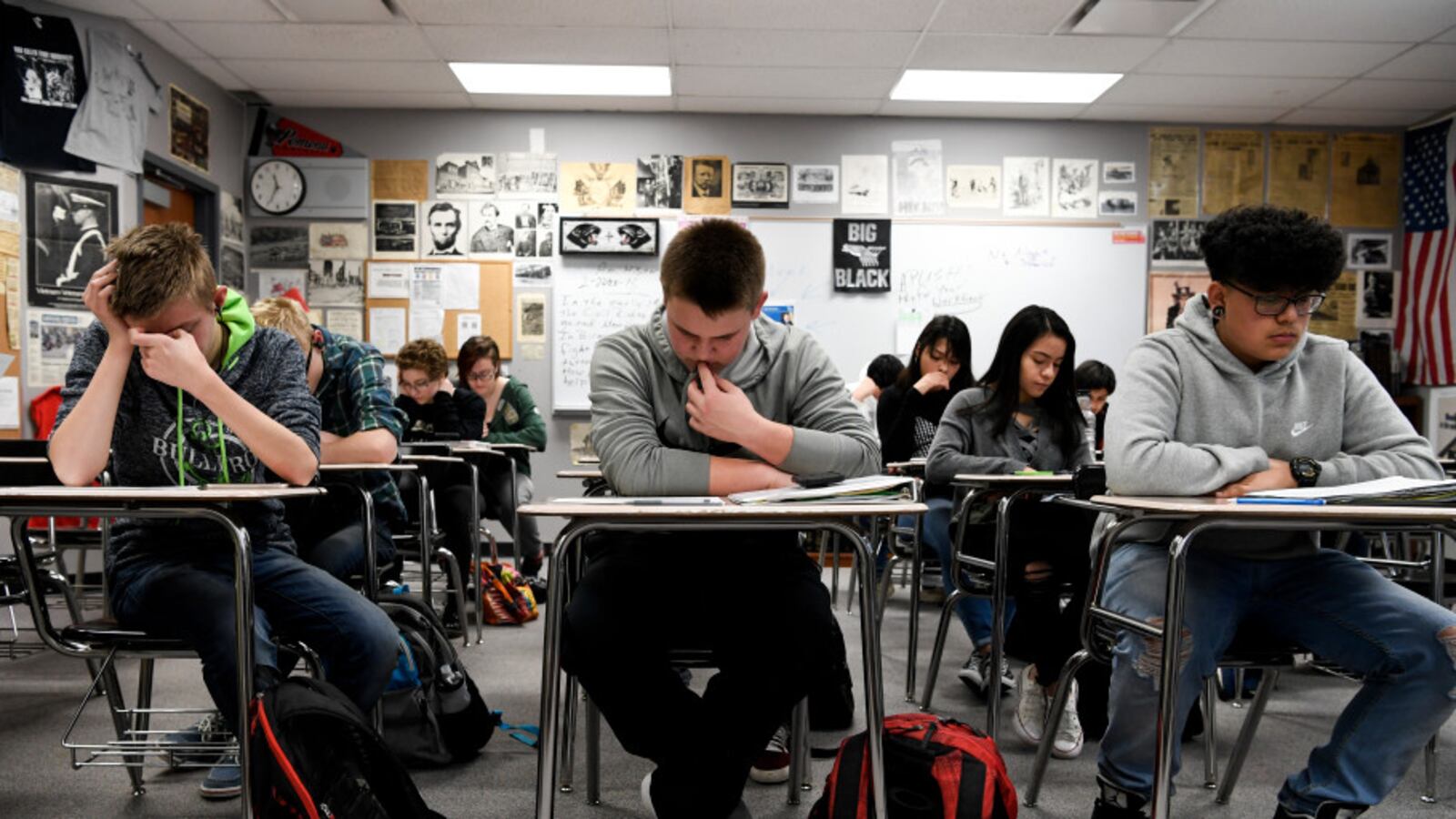Closing a chapter in the state’s testing wars, Colorado lawmakers are quietly preparing to do away with the statewide high school social studies exam.
It won’t be missed much by students or teachers — because it hasn’t been given since 2014.
A bill to do away with the high school social studies exam, which covers topics like history, geography, and civics, unanimously passed the state House on Friday with hardly any discussion. The bill was originally written to replace the exam with the U.S. citizenship test, but that provision was stripped out, leaving no test at all. The bill goes now to the Senate.
The lack of debate stands in sharp contrast to two years ago, when a similar effort failed amid significant pushback from lawmakers and social studies teachers. They argued that not testing social studies would send a message that the subject didn’t matter. Now legislators say classroom teachers are far better equipped to test their students’ knowledge. No one rose to defend the exam, which exists in theory, but not in practice.
Even if administered as designed, “teachers couldn’t use the data to help their teaching,” said state Rep. Barbara McLachlan, a Durango Democrat and chair of the House Education Committee. “Nobody is crazy about the test.”
McLachlan joined state Rep. Perry Buck, a Windsor Republican who has been trying to do away with the test for years, in sponsoring the legislation.
The beginning of the end for the social studies exam came five years ago. Colorado had become the epicenter of a national “opt out” movement that united the left and the right to oppose what they saw as excessive testing. Many students boycotted the exams. Tossing years of work, the State Board of Education refused to set criteria to determine how well students did on science and social studies tests.
In 2015 legislators greatly reduced the number of tests that Colorado students take and guaranteed the right of students to opt out of standardized tests. Lawmakers also agreed to give the social studies test just once every three years. The federal government requires a standardized science exam, but it doesn’t require a standardized social studies test.
Fourth- and seventh-graders have dutifully taken this test, but high school students never have. The test kept being put off, as Colorado moved all high school students to taking the PSAT and the SAT, then revised its social studies standards, then developed a companion test for students with significant cognitive disabilities. Even if the law doesn’t change, it would be 2022 before any high school students took the social studies test.
The State Board of Education has not taken a position on eliminating the test.
If the results from state science tests are any indication, participation in the high school social studies would be poor. Just 61% of eligible students took the science test last year, compared with almost 93% who took the SAT. And if the results from the middle school test are any indication, students would not do particularly well on a high school exam. In 2019, just 18% of seventh-graders met or exceeded expectations on social studies.
Mark Sass, a high school social studies teacher in the Adams 12 district and Colorado state director of the Teach Plus Fellows program, testified two years ago in support of keeping the exam. This time, he didn’t bother, though he would prefer to keep it.
“If we want to monitor how kids are doing in social studies, the way to do this is through a test,” he said. “This represents the ad hoc approach to accountability in Colorado. There is no coherence.”
Even as he agreed to do away with the test, state Rep. Jim Wilson, a Salida Republican, described an “overwhelming cloud” over the decision.
“What are we doing to make sure our students understand what makes America, America?” he asked.

